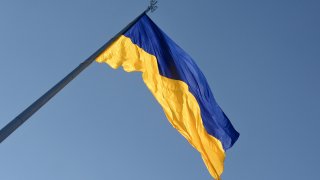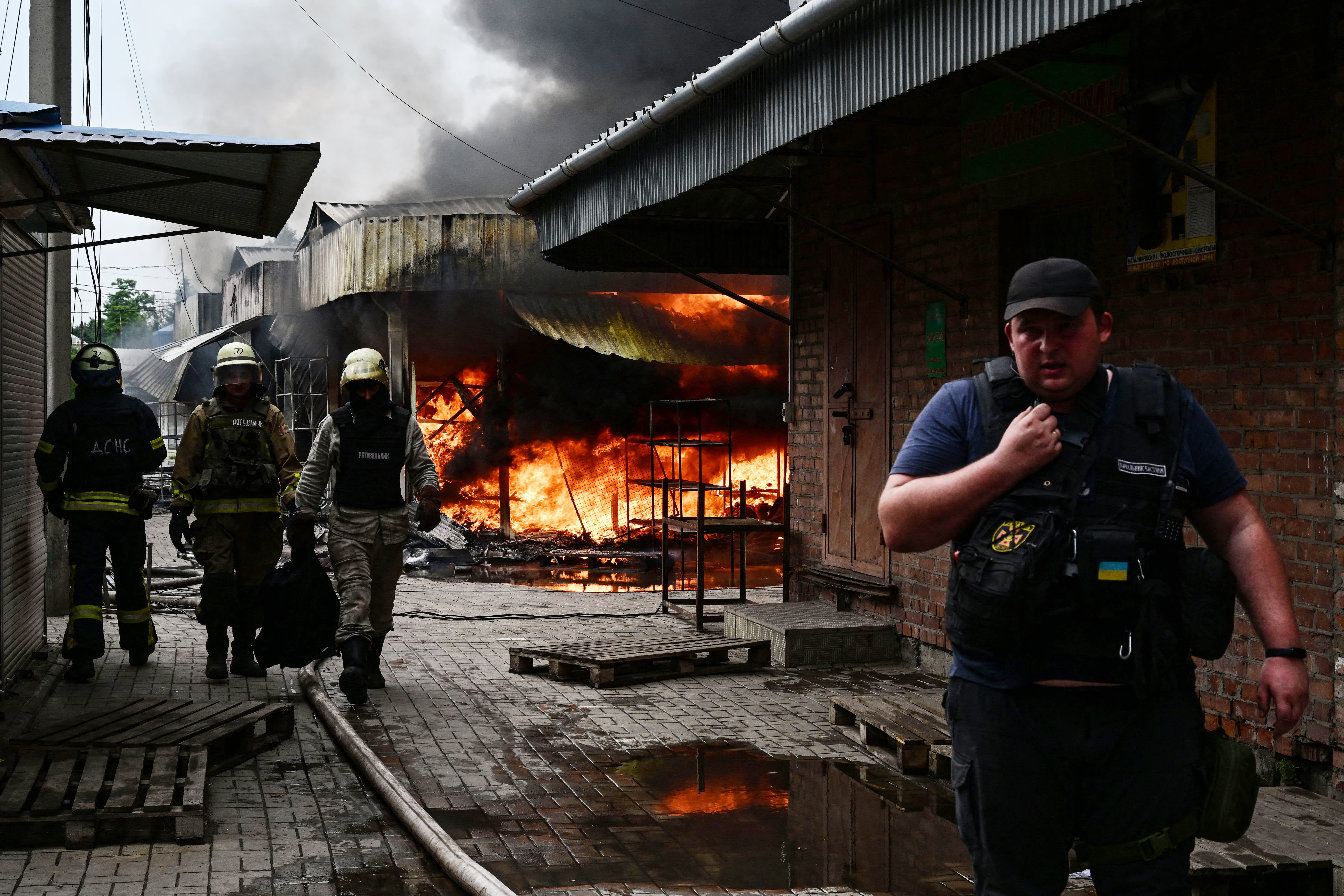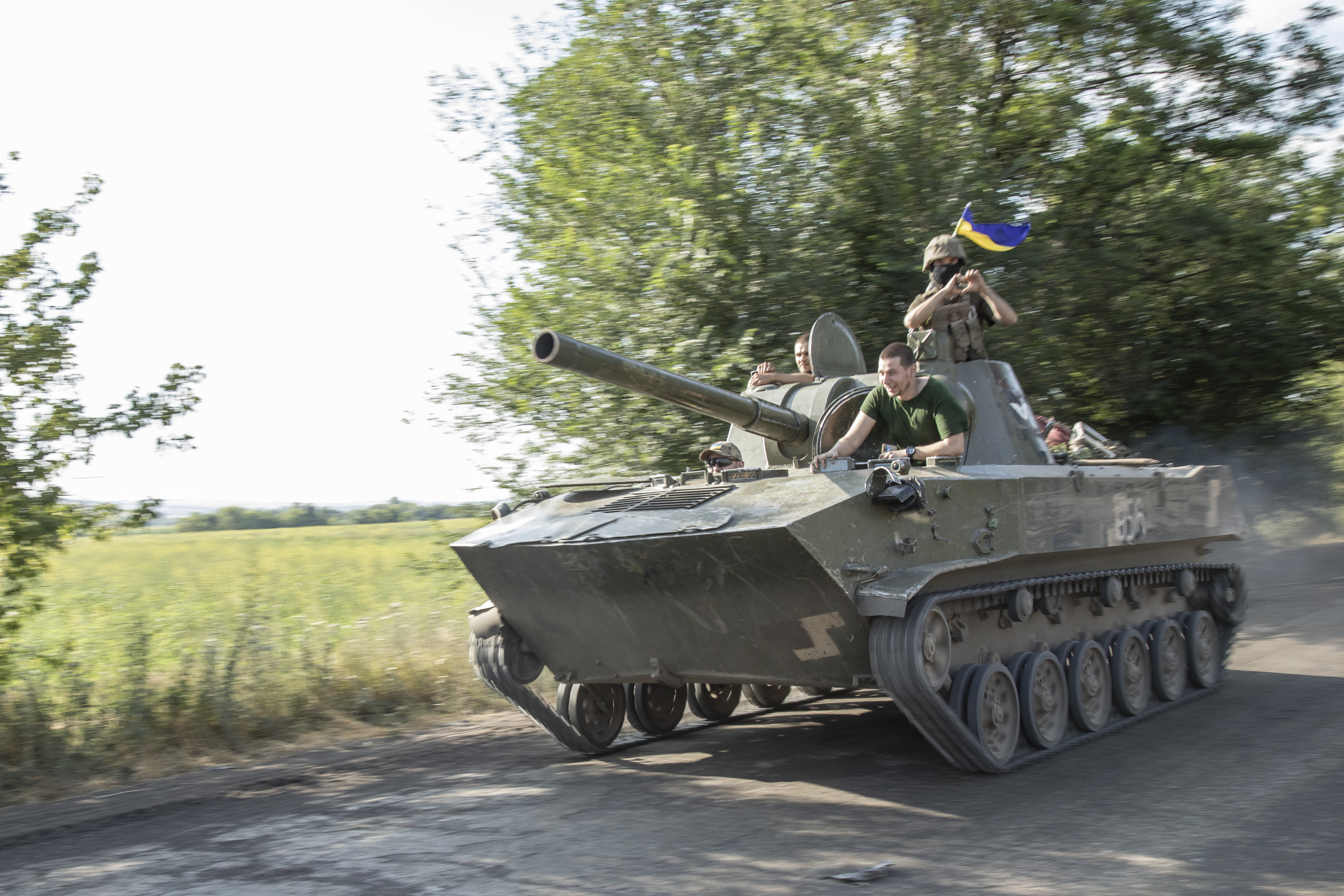
Nataliya Anon is doing OK, given the circumstances. As the founder and CEO of Hromada, a nonprofit organization and monthly newspaper based in Marin that serves the local Ukrainian community, the last months have been a melange of words no one wants to be using: "horrific," "gut-wrenching," "carnage."
Anon was born and raised in Ukraine when it was still part of the Soviet Union, but has lived in the United States since 1992 and founded the tech startup Svitla Systems in 2003. Some days she says she feels like losing it.
"No Ukrainian is good right now," she says. "It's really dark and difficult, like David vs. Goliath."
Since Feb. 24, Putin's Russia has invaded and waged a land and air war on neighboring Ukraine in an effort to forcibly absorb the nation of 44 million into the Russian empire. Thousands are dead and millions more displaced, fleeing to neighboring countries like Poland as well as more disparate allies, like the United States.
Get a weekly recap of the latest San Francisco Bay Area housing news. Sign up for NBC Bay Area’s Housing Deconstructed newsletter.
The Bay Area is home to a community of more than 10,000 self-identified Ukrainians and their descendants, and local mobilization to highlight organizations, send aid and protest for government action has been swift and ardent.
But Anon is worried about what comes next, about what could happen when the war no longer dominates headlines, online feeds and social discourse.
"Our PayPal donations have dried out in recent days; when we talk to the media, they go up," she says. "There is already fatigue building up, but it's a continuing effort. It's not just a fight for Ukraine's survival. It's the fight for global democracy, for dignity."
Hromada was founded in 2017 mainly to establish the West Coast's first Ukrainian language newspaper, but has always maintained a charitable branch and has pivoted in recent months to focus on crisis aid.
They specialize in micro-grants, ranging between $5,000 and $10,000 that they donate both to larger organizations and directly to volunteers on the ground in Ukraine who are helping feed, treat, shelter and clothe refugees within the country. Despite raising more than $287,500 thus far, it doesn't feel like enough.
For Yulia Zimmerman, she spent the early months of the war terrified for her mother. Having immigrated to the Bay Area in 2007, Zimmerman was, up until recently, the only member of her family in the United States.
She's from Mykolaiv, a port city in southern Ukraine that has gotten national coverage for its fortitude against Russian forces. Zimmerman's mother is 74 and, like millions of other Ukrainians, planned to leave her home; she arrived in California in May. Her daughter had feared she might die of stress before getting to safety.
"I've been doing this all my life in the U.S.; I've been preaching for my home country. We need to make sure [support] is for the long term," she says. "We don't know how long the war will be going on. It will take years to rebuild Ukraine."
Sending immediate aid to Ukraine
Zimmerman is a cofounder and marketing director of Nova Ukraine, a Silicon Valley-based organization founded in 2014, the same year as Putin's annexation of Crimea.
The organization has raised more than $22.5 million in donations thus far, distributed as medical, evacuation, pet rescue and food aid. They've also collaborated with multiple international organizations, currently fundraising with UNICEF and collaborating with Airbnb to secure fleeing refugees with housing vouchers.
"When I was giving an interview eight years ago about WWIII, people said it was crazy, and here we are," Zimmerman says.
As the Supreme Court's dismantling of Roe v. Wade reverberates and the Jan. 6 hearings continue, we can't lose sight of how these issues intersect. In the first months of Russia's war against Ukraine, support for Ukraine was strong, visible in the streets and online. Restaurants like Fiorella donated their March proceeds to aid efforts, and chef Cynthia Samanian hosted cooking classes to raise funds for Ukrainian refugees.
The local chapter of the Ukrainian National Women's League of America led an ecumenical Taize prayer for Ukraine fundraising event in April at Memorial Church in Stanford in collaboration with the Catholic Community at Stanford University and Office for Religious and Spiritual Life at Stanford.
Thinking long term
It's easy to make a donation once, share a post online and check headlines, but it's much harder to sustain that investment. Both Zimmerman and Anon are thinking long term, for everything that will come after the war is over.
Rebuilding a nation won't be easy, and it won't be swift. But there are so many ways to continue. It can be as easy as abstaining from buying Russian products and wearing Ukrainian colors. Calling your representatives and senators is even better.
Anon says that the Hromada newspaper now also prints English articles, as seen in the April and May issues, to provide broader solutions for citizens to engage with the political aspects of the war, and not just the emotion-driven narratives that pepper headlines.
"We've been saying 'never again' but that never again is unfolding before our eyes," she says.
How to help
Donate to Hromada at https://hromada.us/donate/.
Donate to Nova Ukraine at https://novaukraine.org/donate/ or through UNICEF at https://www.give.novaukraine.org/.
Nova Ukraine also lists various platforms where Americans can offer rooms and apartments as temporary shelter for Ukrainian refugees at https://www.refugees.novaukraine.org/.
This story was first published as part of the Inspire Me series on LocalNewsMatters.org, an affiliated nonprofit site supported by Bay City News Foundation. Find the original link with additional content, photos and links here: https://localnewsmatters.org/2022/07/01/aid-organizers-the-bay-area-has-stepped-up-for-ukraine-and-needs-to-keep-going/



